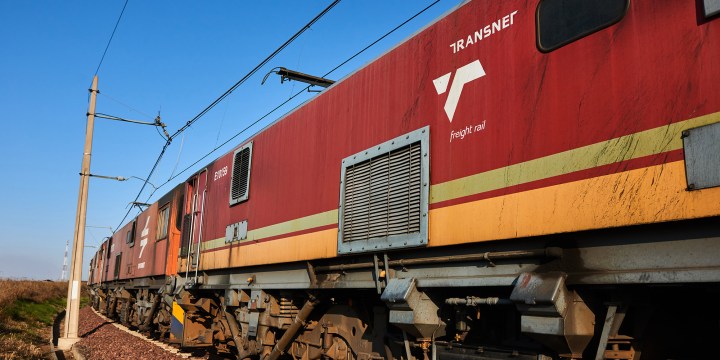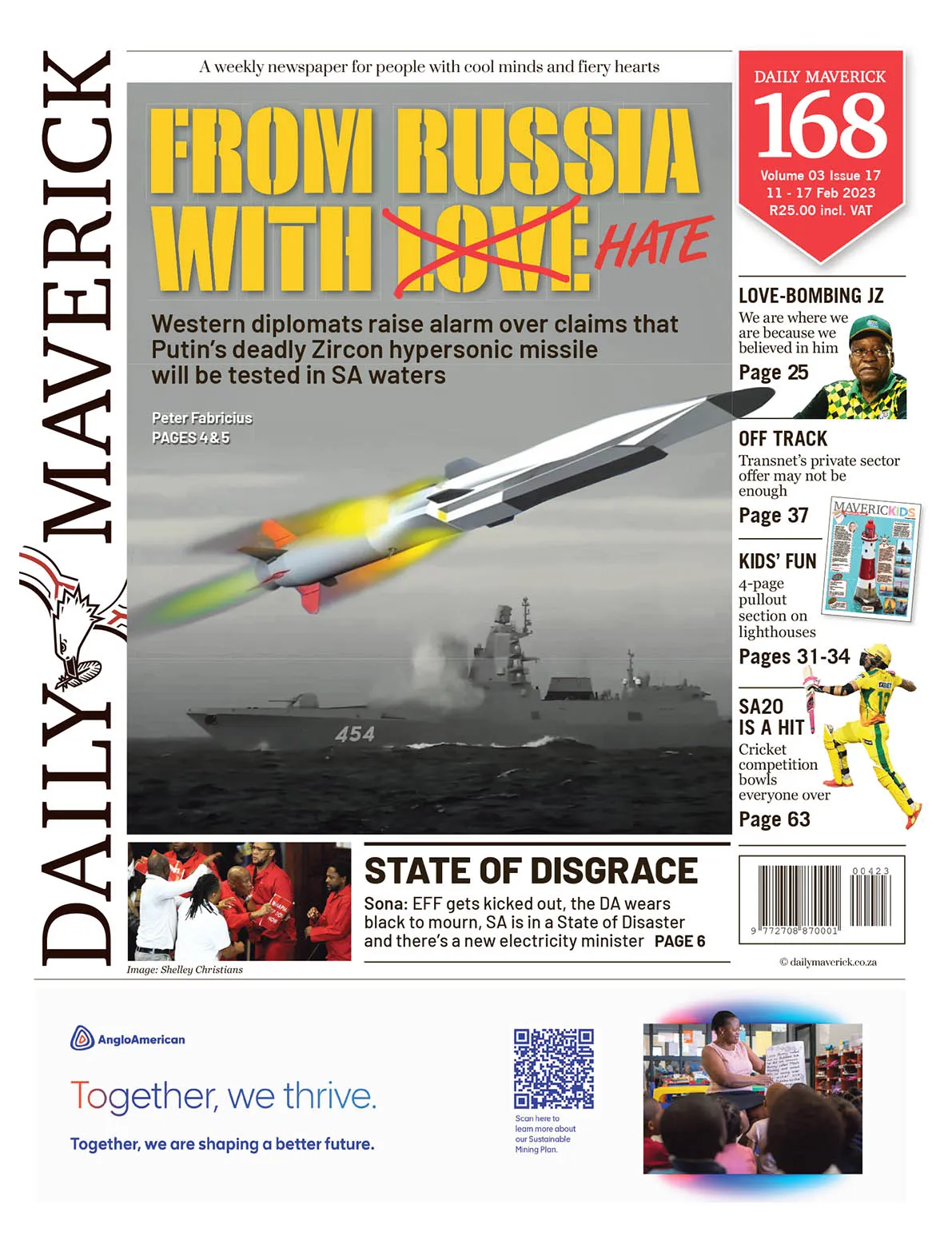FREIGHT RAIL
Will companies bite at the latest Transnet offer to partner?

The state-owned company wants the private sector to step in and help run South Africa’s most important rail container corridor, but its model may not be enticing enough to attract interest.
Transnet is having another stab at getting private-sector players to run its trains after a similar attempt flopped a few months ago.
But the transport group and its owner, the South African government, are not yet ready to hand over the keys to the country’s crumbling rail infrastructure to the private sector and embrace a full privatisation model.
Instead, Transnet wants to partner with private-sector players and keep them on a short leash, but allow them to run trains and unlock maintenance investments in the rail infrastructure for two decades.
Transnet’s largest division, Transnet Freight Rail, issued a request for qualification (RFQ) at the end of January, calling for interested private-sector players to bid for a 20-year lease to operate its rail container corridor between Johannesburg and Durban.
It is SA’s biggest and most important rail container corridor, featuring double-track rail lines that run for 1,621km, and is a key logistics enabler of import and export activity. Heavy-haul locomotives pull the coal and iron ore wagons on it, and it carries other goods such as automotive parts, grain, fuel and chemicals. More than 60% of containers passing through SA’s ports are channelled through the corridor.
By issuing the RFQ (similar to a tender), Transnet is testing the private sector’s appetite to partner with it. It’s also an admission by Transnet that it cannot run the rail infrastructure without the private sector’s help. But Transnet is not yet ready to give up control and ownership of the rail container corridor, considering its significance to the economy.
Mechanism for private-sector participation
How it will work is that Transnet will embark on a private-public sector partnership model, in which private-sector companies will run the Johannesburg-Durban corridor for 20 years. The successful bidders will also be responsible for the future maintenance of the corridor, which requires at least R5.5-billion for it to be spruced up over the next 20 years. The bidders will also be responsible for the operational management of the corridor, including paying the salaries of more than 3,000 Transnet Freight Rail staff, and additional security that the company has deployed to guard rail tracks against cable theft.
The tender document reads: “The operating lease will provide for the required investment in the rehabilitation, upgrade and maintenance of the rail network and rolling stock assets, as well as the operations of the container corridor, which includes the Bayhead back-of-port terminal and defined inland terminals of City Deep, Kascon and Bayhead. The involvement of the private sector is intended to result in a significant shift of containers from road to rail, and increased operational reliability and efficiency.”
Giving it back
So, after 20 years and assuming that the Johannesburg-Durban corridor is fixed and well maintained, successful bidders will have to hand the corridor back to Transnet. It is a huge ask, considering that Transnet is basically wanting a private-sector company to pour money, time and effort into the corridor and walk away after many years without owning it.
Also, the private sector will essentially be doing the job of Transnet Freight Rail executives — led by CEO Siza Mzimela — while they will be remunerated, even though the sector will be doing the heavy lifting when it comes to running the corridor.
Whichever way the arrangement is viewed, Jan Havenga, a logistics professor at Stellenbosch University, says it is a positive development for Transnet and for fixing this important economic corridor.
“Transnet has inherited problems with the corridor due to neglect and underinvestment by previous management, especially during the State Capture years. Cable theft and vandalism to the rail network can also be blamed,” says Havenga. “Transnet recognises that the Johannesburg-Durban corridor is important and requires major upgrades, but doesn’t have the money to fix it. So, they need the private sector’s help.”
Financial stress
Like Eskom, Transnet has financial problems. It carries a debt of R127.6-billion on its financial books and is increasingly at risk of defaulting on repayments. Transnet also faces declining revenue, especially in its rail division, because it struggles to move large volumes of goods via rail. For instance, Transnet’s coal volumes that are moved through the Richards Bay coal terminal peaked at 76 million tonnes, but are said to have hit a record low of 49 million tonnes in 2022. The mining sector has put the cost of lost export opportunities in 2022 at R50-billion.
Transnet is a big threat to SA’s economy as it cannot fulfil its most basic function of running trains on time, or even be reliable in ferrying most of the iron ore and coal that SA produces for export to countries around the world. It is also struggling to move goods, including steel, cement, agricultural products and bulk liquids, within SA. When Transnet isn’t operating properly, SA business and exports come to a standstill.
Transnet has tried to open its operations for private-sector participation in recent months, but has failed spectacularly. Less than a year ago, it ran a tender process to allow private-sector companies to access its rail network and run trains by opening 16 rail slots. But it set such strict tender terms that, in the end, only one company was successful out of the 18 that participated in the tender process.
Visit Daily Maverick’s home page for more news, analysis and investigations
Mesela Nhlapo, CEO of the African Rail Industry Association, says that for a private-public sector partnership to work, Transnet should put in place less onerous tender terms, including not asking for large capital requirements for the maintenance of infrastructure, and offering lease terms of longer than 20 years.
Havenga agrees, saying that basing a private-public sector partnership model over 20 years is “too short” — the standard globally is 30 years. But regardless of the lease term, Havenga says the corridor can make a lot of money for successful bidders.
“If the corridor is managed well, the successful bidders can recoup the R5.5-billion [capital required] to maintain and expand it over the next 20 years. The corridor has the potential to generate a net profit of R1.5-billion every year, especially if more cargo volumes are moved and customers are charged higher tariffs.” DM168
This story first appeared in our weekly Daily Maverick 168 newspaper, which is available countrywide for R25.




















 Become an Insider
Become an Insider
I imagine the answer to the question posed in the headline is no. Decades of mismanagement, corruption and theft have destroyed large swathes of the infrastructure. Ongoing theft of cables and other sellable goods make it unworkable as a business model for anyone without the bottomless tax trough.
In the real world, a company brought to its knees by poor management practices is invariably bought, previous management is largely retrenched (especially executive level) and a new team with a fresh vision is installed to make it happen. Transnet-no so much. They want money and skills injection but the ‘partner’ will be hamstrung by ideological constraints that even Putin set aside when the Berlin Wall came down. Good luck with this one.
There’s nothing wrong with the concept of a concession for the line. It’s being done very successfully in other countries – I’ve personally worked on concession bids in Angola, Mozambique, DR-Congo, Somalia and South Africa – and the large global operators know the risks and costs involved. They see excellent opportunities in Africa that most South Africans are absolutely blinded to through years of prejudice or ignorance and they’re prepared to sink significant resources into these for a 20 to 30 year concession.
The fly in the ointment appears to be that the concessionaire is expected to pick up the bloated pay tab and have no control over who is hired and (crucially) who is fired – if you bring in a new management team, what happens to the existing one? Paid to do nothing? How many workers are superfluous to a well run, efficient logistics chain? This deal appears to fudge the issue of a proper concession with a sop to the unions and left of the ANC, that whilst they want private money and expertise, they don’t want the deployed cadres to have to forfeit their cushy jobs.